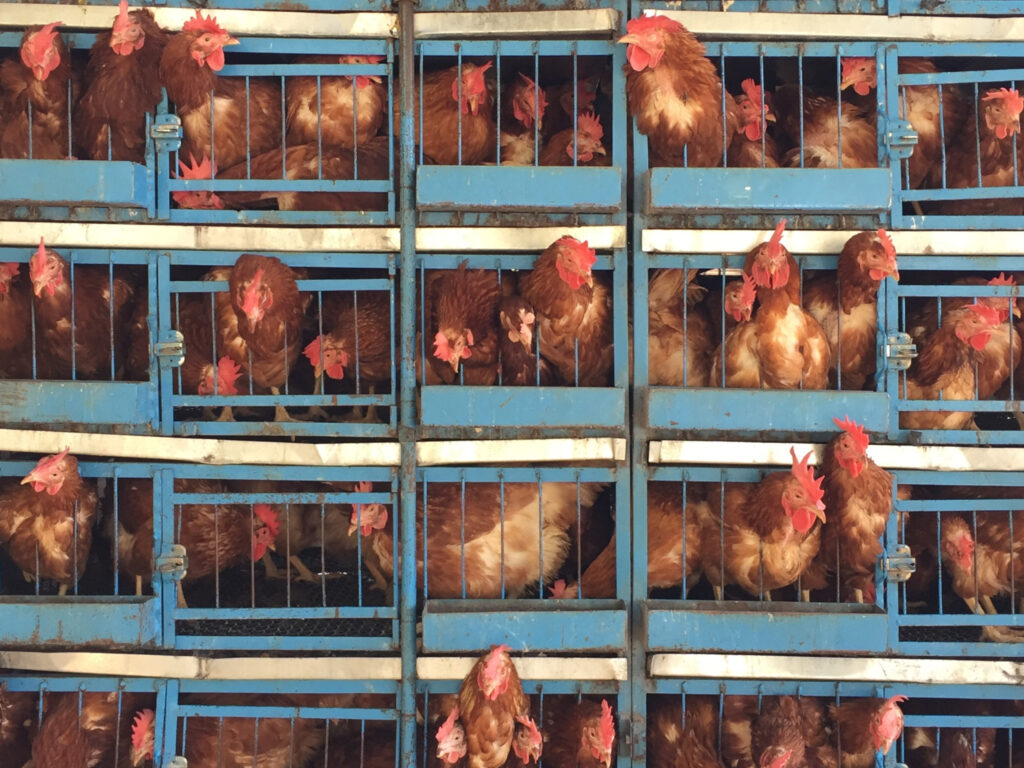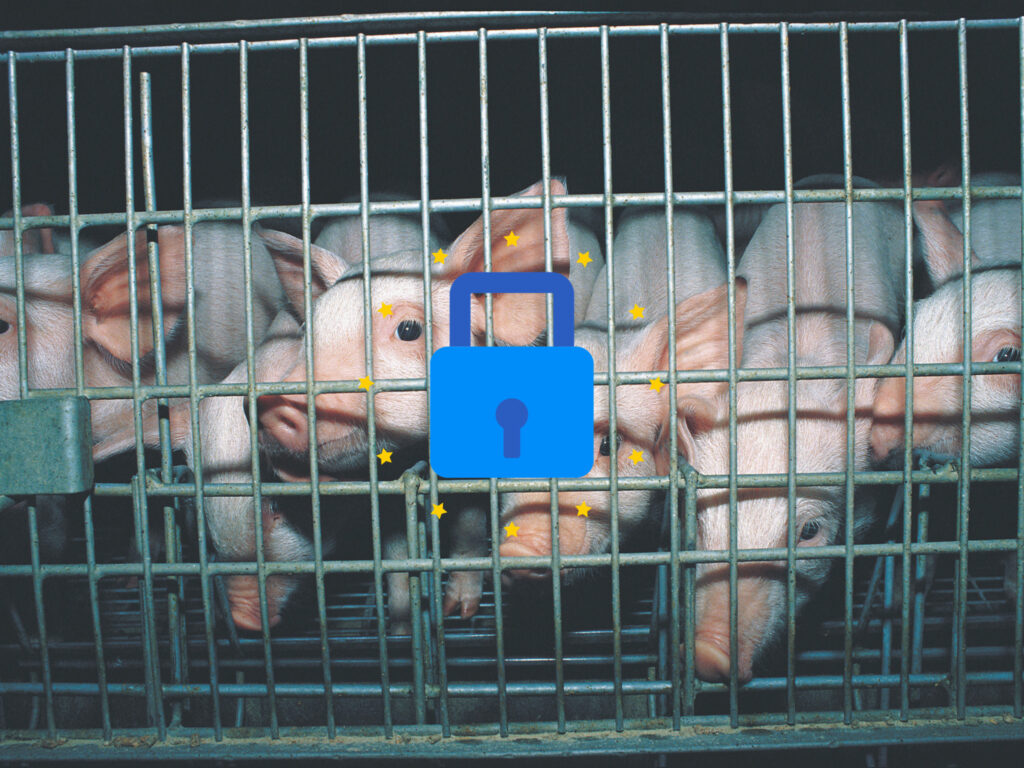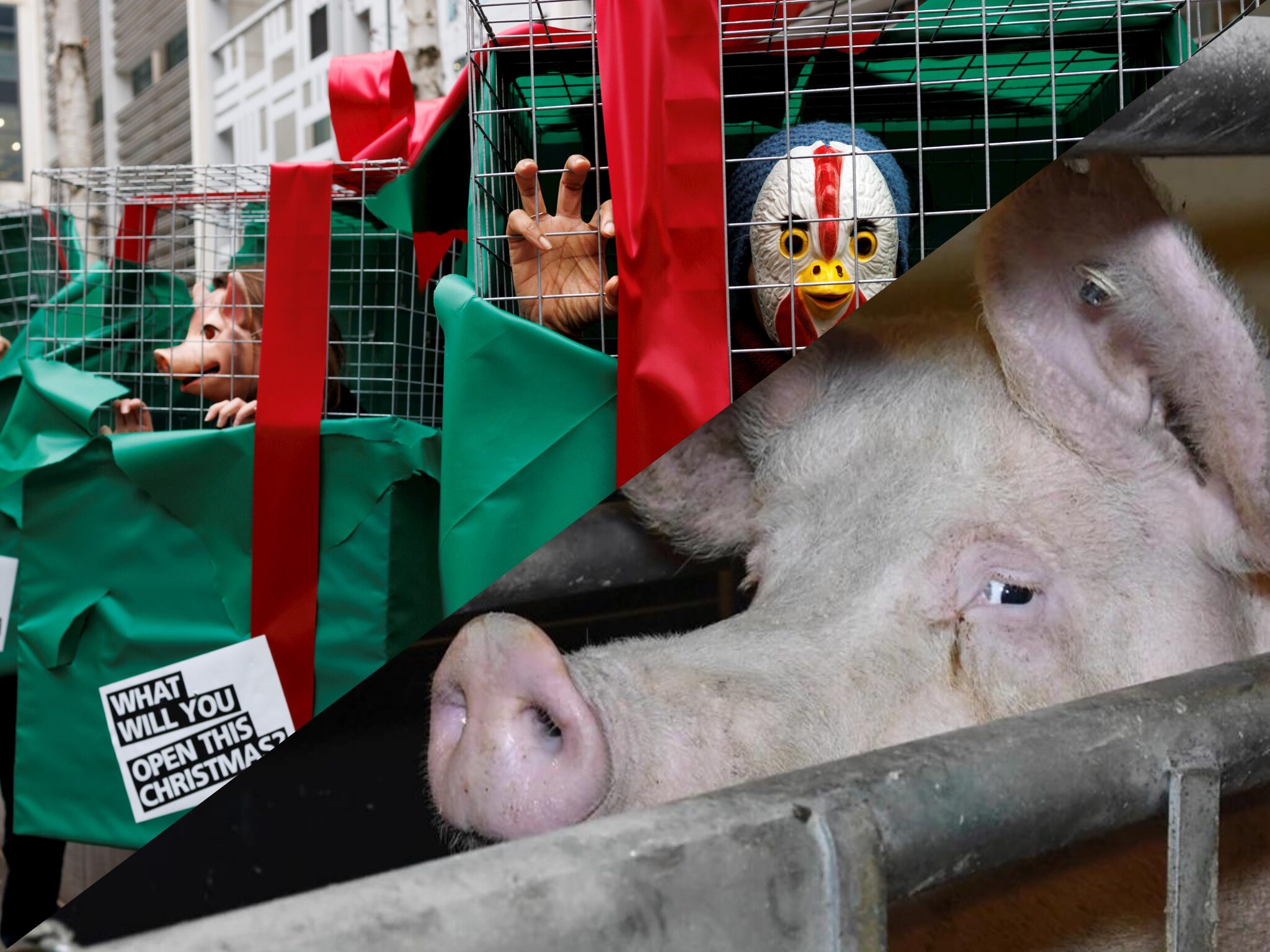EU Commission Facing Legal Action Over Failure to Deliver Caged Farming Ban
5 Mins Read
The EU Commission is facing legal action from a European Citizens’ Initiative group after it failed to uphold a promised ban on caged farming in the region, despite overwhelming consumer support for the move.
End the Cage Age, a seven-member European Citizen Initiative (ECI), has launched legal action against the EU Commission after it went back on its commitment to ban the caged farming of animals like hens, pigs and rabbits.
In 2021, the EU endorsed a resolution promising to deliver proposals to ban caged farming by the end of 2023, following a petition signed by over 1.4 million Europeans and backed by a coalition of 170 NGOs. These included four laws that would abolish acts like keeping farm animals in cages, slaughtering day-old chicks, and the sale and production of fur.
However, a report in September indicated that the EU was thinking about abandoning this proposal, followed by all but one of the proposals being shelved from the EU Commission’s 2024 work programme. The ban is effectively on hold indefinitely now, following consistent pushback from agriculture lobby groups.
This is why End the Cage Age has decided to take legal action and hold the EU Commission accountable, having filed papers at the Court of Justice in Luxembourg.
Why End the Cage Age took the legal route

“While all farm animals benefit from current legislation on the protection of animals, only laying hens, broilers, sows and calves are covered by rules on caging. In its response to the ECI, the Commission commits to table, by the end of 2023, a legislative proposal to phase out, and finally prohibit, the use of cage systems for all animals mentioned in the Initiative,” the EU stated in 2021.
That has not come to fruition, leaving the futures of the more than 300 million pigs, hens, rabbits, ducks, quail and geese that are kept in cages across the region. According to animal rights charity Compassion in World Farming (CIWF), sows are forced to nurse their piglets in crates that are so small, they can’t even turn around, while rabbits and quail spend their whole lives in barren cages, and ducks and geese are caged and force-fed for foie gras production.
As part of the End the Cage Age coalition, CIWF is funding the legal action, which is described as the “first to hold the Commission to account over its failure to act on an ECI”. The legal filing highlights that ECIs were introduced with the intention of giving EU citizens more influence over decision-making, and that to renege on its promise to ban cages defeats the purpose of this tool.
Consumers’ stance on this issue couldn’t be clearer. In October, the EU Commission’s own Eurobarometer survey found that 89% of citizens supported the ban on caged farming. Its scientific advisory body, the European Food Safety Authority, has also backed a phaseout of cages on welfare grounds for various animals.
“We have launched this End the Cage Age legal action against the Commission on behalf of the voiceless animals and the millions of EU citizens who supported this legislation, believing the ECI to be a genuine democratic tool that would give them more influence over EU decision-making,” said Olga Kikou, our EU head at CIWF and member of End the Cage Age. “We will not rest until every cage is an empty cage.”
If the legal action is successful, the EU’s legislative arm would be mandated by the court to publish its proposals within a “clear and reasonable timescale”, and grant access to its file on the End the Cage Age ECI.
EU Commission ‘caved into pressure’ from ag lobby

The EU’s U-turn on the caged farming ban is widely thought to be a response to unprecedentedly aggressive lobbying from the livestock sector. In October, a joint investigation by three media outlets revealed that meat industry interest groups campaigned to “undermine science, co-opt journalists and pressure officials at the EU” to influence the law and decision-making around the proposals.
One EU official described it as the first time in a decade-long career that they felt such intensive pressure from a farming group. Another said that the lobbying had put “really aggressive pressure” on the EU Commission, which “enabled” the delay. Lobbyists targeted senior officials in the organisation, following which, the hierarchy’s viewpoints over the issue became “extremely negative”.
EU members were inundated with backlash via multiple channels, including an influential letter by industrial farming group Copa-Cogeca (which has deep ties with several MEPs), a 60-page report discrediting the EFSA’s proposed legislation, and public speaking engagements questioning scientists.
“Industry fought really hard and dirty on this file,” said Anja Hazekamp, vice-chair of the EU Parliament’s environment committee. “They tried everything they could think of because they know we desperately need animal welfare legislation to make our food system more sustainable and humane, and this was their last chance. They don’t want to change, but see that change is inevitable so they’re getting desperate. They will do anything to save their skins.”
In an op-ed for Euronews, Kikou accused EU Commission president Ursula von der Leyen of caving in to pressure from the agriculture lobby. “We simply cannot allow the powerful farming lobby to have preferential access to decision-makers to influence them to backtrack on promises they have made to citizens,” she wrote.
End the Cage Age has received significant support from the EU parliament, where eight out of ten MEPs have voted in favour of a ban on caged farming. The ECI has garnered endorsements from over 170 European organisations representing scientists, farmers, climate activists, health campaigners, as well as the business sector.
“The European Commission promised EU citizens it would deliver a ban on cages,” said Kikou. “Not only has it failed the people, it has clearly failed the 300 million animals still suffering every day in cages. There is no justification for any further delay.”



